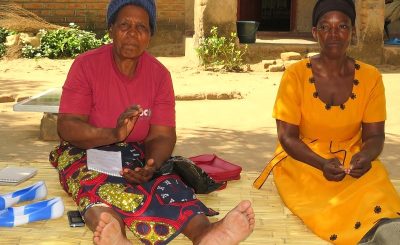Zativuta, (not her real name) a standard seven pupil at one of the leading primary schools in Zomba, the country’s old capital city, thinks that preaching that “education is a key to success and the foundation of the social wellbeing of every country” is nothing but “false gospel” considering the shrinking standards of the country’s education system.
The young girl laments over the frequent changes in the primary and secondary school curriculum coming in the face of many other shortcomings within the academic system which has left many children’s minds dangling.
“You can go in another class and learn another syllabus, another class another syllabus, another class again another syllabus.” The changing of the curriculum can be confusing to our heads,” she mourns.
While agreeing with the whole idea of changing secondary and primary school curriculum from time to time, Executive Director of Civil Society Education Coalition (CSEC), Benedicto Kondowe questions the current leadership’s competence in bringing sanity in the education sector.
For the rights campaigners, it is a worry that government is much into the business of changing the curriculum at uneven intervals without concentrating on issues that need urgent support within the sector.
Kondowe says: “You cannot have quality education if you change the curriculum regularly even for the one that is phasing out especially day secondary schools were poorly resourced.”
Much as the move to change the curriculum to some extent is brilliant, Malawians think the pace at which the learning modules are changing is a flop. This is according to Alfred Banda, who is an Advocacy Counsellor in the country.
Banda thinks that government could have done better if it had taken time to prioritize on addressing the existing problems crippling the education sector rather than changing the curriculum on short intervals, which to some level shows how uncertain the nation is in terms of the quality of education it intends to offer.
“Its total killing of education in Malawi because they are not investing in education, they are investing in some peoples’ interests,” says Banda.
“It demands a lot of money to change a curriculum, if maybe that money can be diverted to increasing teachers’ salaries maybe we can motivate them to work hard and similarly students can benefit from the hardworking teachers.”
Despite all the arguments, questions still remain on the huge expenses incurred each time a learning curriculum is being revised in view of the country’s ailing economy.
One of the country’s economic experts, Murry Siyasiya points out that those questions can be answered only if the ministry of education conducts a cost benefit analysis of the whole development.
“The rule is that you compare the costs expected benefit from the exercise, so it might have been that they have been comparing the costs with the expected benefits and they are finding that the benefits are exceeding the costs.
At the center of it all is the minister of Education, Science and Technology, Bright Msaka SC. Msaka backs the changing of the curriculum by suggesting that it is done to ensure that it matching with new technology trends and discoveries in the long run.
“We have experts in the ministry that evaluate the kind of information that is being disseminated to our students and when the time has come to make a change they do so, so they can’t say let’s continue giving our students irrelevant information so that we save money,” says Msaka while adding, “that would be seen as a defeat of the education system.
A Nigerian girl once wrote the former president Olusegun Obasanjo: it read, “I am worried and constrained to write you this letter because I am in a situation where I have the past that I don’t understand, a present which is confusing and a future I don’t have confidence in.”
Her letter of frustrations to the then president on lack of a stable education system for scholars who were subjected to the education system that offered nothing promising but wagging tongues could also speak for a Malawian child, who knows?





